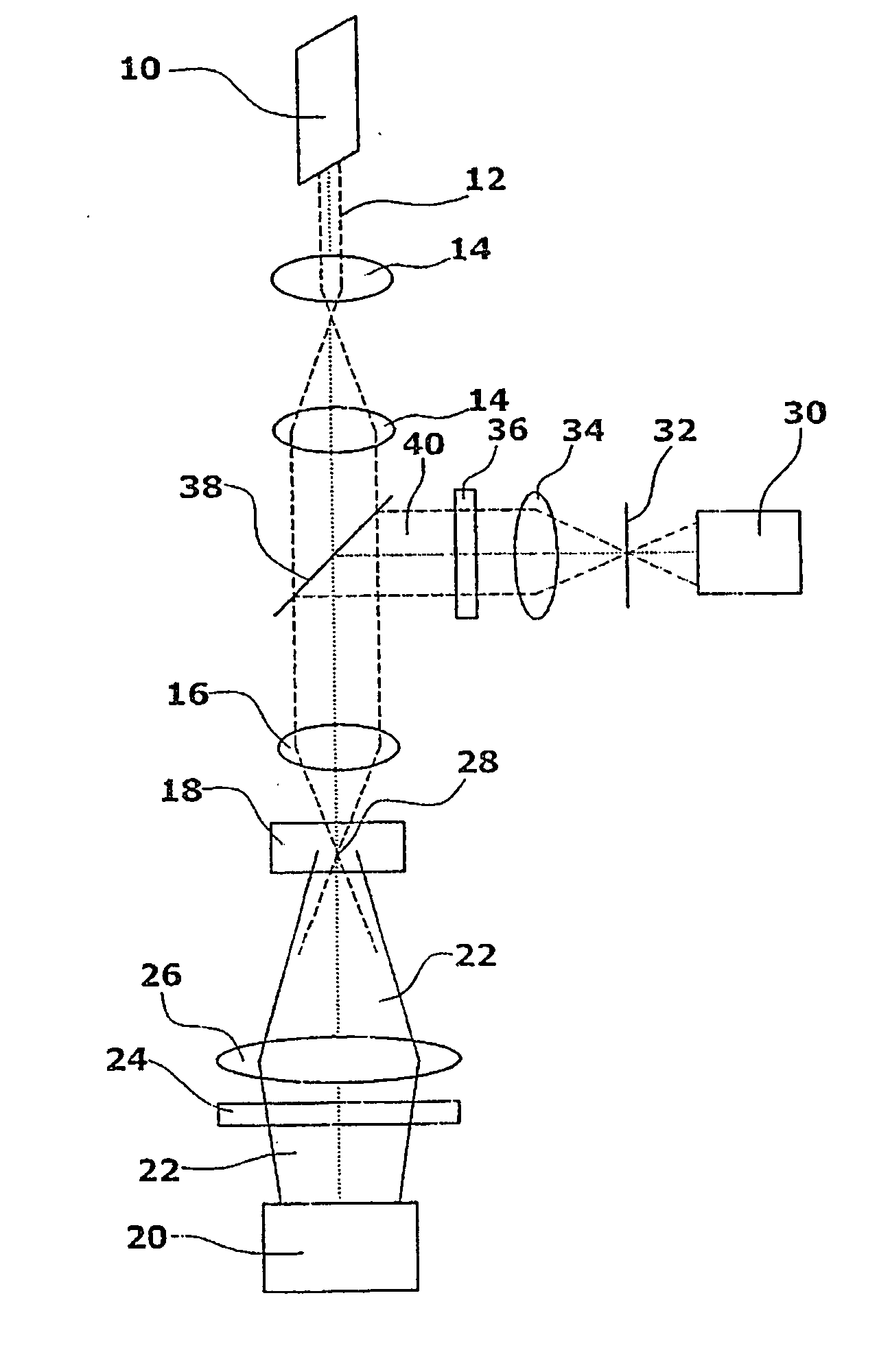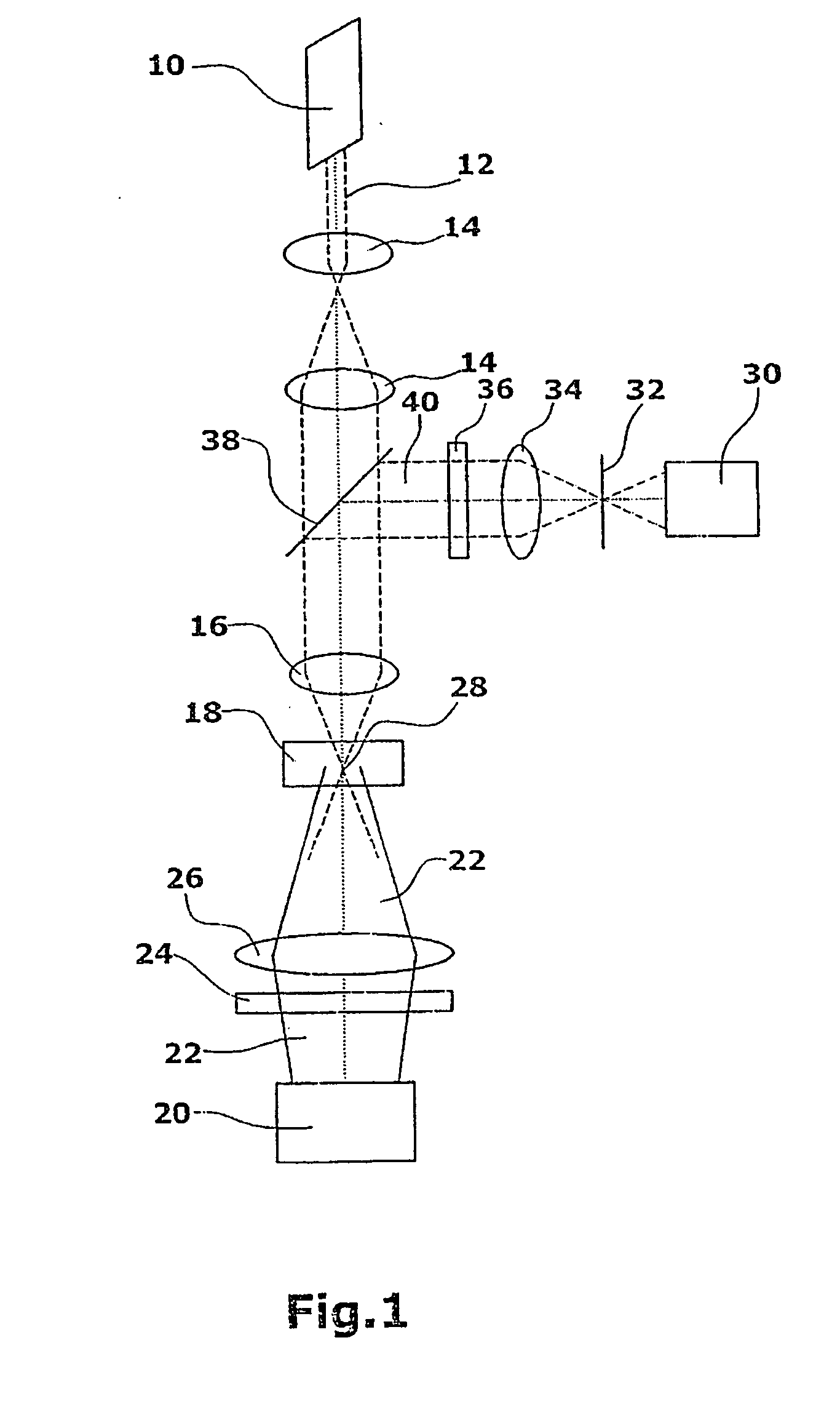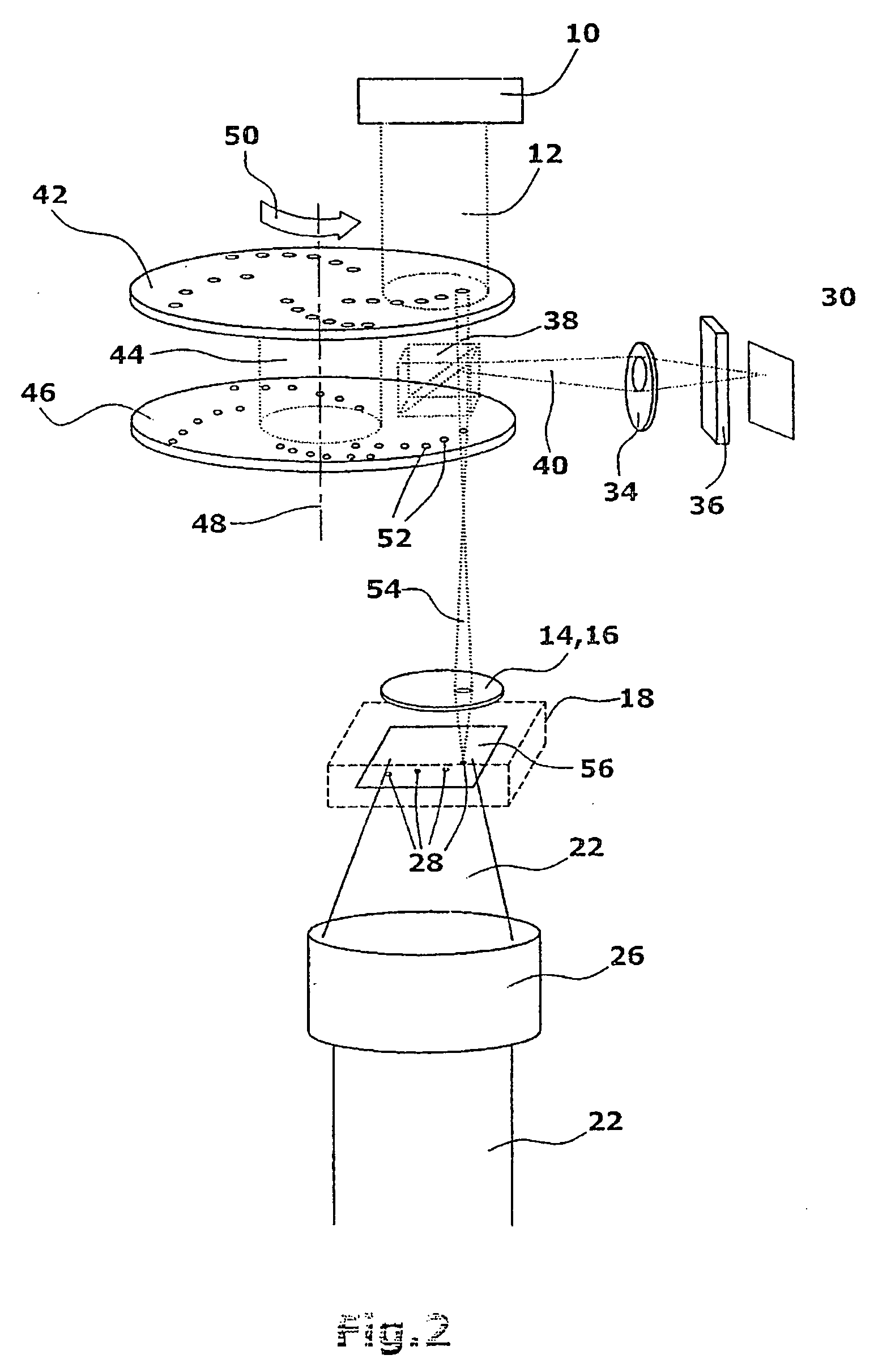Device and method for measuring the optical properties of an object
a technology of optical properties and devices, applied in the direction of optical radiation measurement, fluorescence/phosphorescence, luminescent dosimeters, etc., can solve the problems of parallel measurement, i.e. inability to simultaneously measure a plurality of measurement volumes in the object, and increase the transmission of illumination radiation
- Summary
- Abstract
- Description
- Claims
- Application Information
AI Technical Summary
Benefits of technology
Problems solved by technology
Method used
Image
Examples
Embodiment Construction
[0034] The device comprises an excitation light source 10 whose excitation light beam is collimated by an optics device 14. By means of a further optics device 16, the excitation beam is focused within an object 18 which is particularly a chemical and / or optical sample which particularly comprises particles such as e.g. cells. The focus or the foci of the excitation radiation will determine the site of one or a plurality of measurement volumes 28 within the object.
[0035] For performing the measurement of optical properties of an object, particularly for performing transmission measurements, an illumination light source 20 is provided on the side of the object 18 opposite from the excitation light source. In the presently described embodiment, the illumination radiation issuing from illumination light source 20 has a different wavelength from that of the excitation light. The illumination beam 22 will pass through a color filter 24, if provided, and an optics device 26 which is pref...
PUM
| Property | Measurement | Unit |
|---|---|---|
| wavelength | aaaaa | aaaaa |
| wavelength range | aaaaa | aaaaa |
| wavelength range | aaaaa | aaaaa |
Abstract
Description
Claims
Application Information
 Login to View More
Login to View More - R&D
- Intellectual Property
- Life Sciences
- Materials
- Tech Scout
- Unparalleled Data Quality
- Higher Quality Content
- 60% Fewer Hallucinations
Browse by: Latest US Patents, China's latest patents, Technical Efficacy Thesaurus, Application Domain, Technology Topic, Popular Technical Reports.
© 2025 PatSnap. All rights reserved.Legal|Privacy policy|Modern Slavery Act Transparency Statement|Sitemap|About US| Contact US: help@patsnap.com



